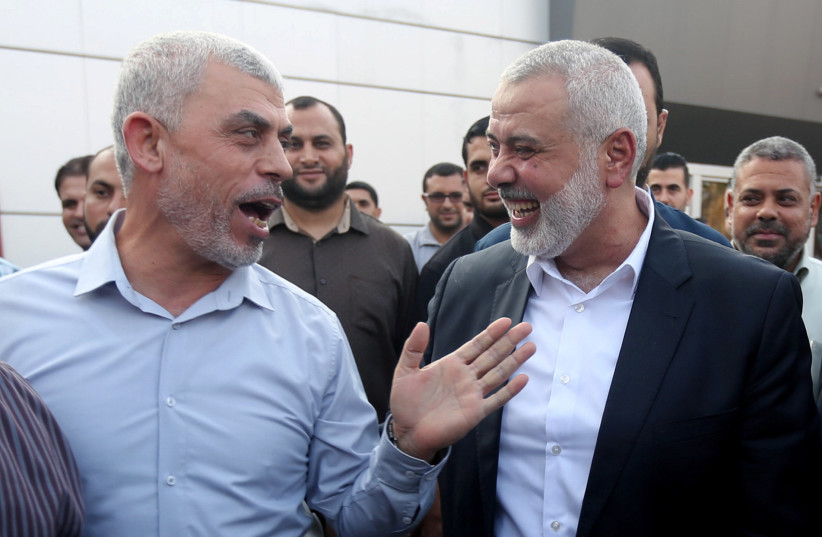Israel and the United States have recently been discussing a plan for the exile of senior Hamas members as part of a wider deal, according to a report on Tuesday on Channel 13.
Officials in Prime Minister Benjamin Netanyahu's inner circle stated in recent closed-door discussions that this is a very favorable option for Israel, as "the implication of the exile is the end of Hamas leadership."
There were reports in the past of a new proposal by mediators that included the exile of Hamas leaders from the Gaza Strip to a third country. According to the report, in exchange for this, Hamas would release all the Israeli captives it holds, but it would be done in stages until the withdrawal of IDF troops from Gaza.
In recent months, several similar initiatives have been reported in the foreign press, which shed light on the ideas underlying the current diplomatic effort. Two weeks ago, the French newspaper Le Monde reported that Saudi Arabia is involved behind the scenes in an attempt to reach a compromise that would end the war in Gaza. According to the report, the Saudis have established think tanks in an attempt to offer creative solutions to the crisis. A confidential document received by Le Monde outlined a plan in which the central component is that the mechanism for ending the war should include the exile of the military leaders of Hamas, who are currently in the Gaza Strip, abroad, specifically possibly to Algeria.
<br>Algeria touted as possible destination
According to the sources interviewed by the newspaper, the Saudi writer Abd al-Aziz al-Saqr primarily directed his words toward familiar figures such as Yahya Sinwar and Muhammad Deif, who were defined as "the military and security leaders of Hamas." The Saudi plan proposal was presented to Anne Grillo, Director of the North Africa and Middle East Department at the French Foreign Ministry.
According to the newspaper's claim, Algeria is considered a possible destination for Hamas leaders to seek refuge due to its good relations with Qatar and Iran, which were defined in Saudi Arabia as the main supporters of the terrorist organization, as well as due to what was defined as "its security capability" that would allow it "to control the activities of these leaders."
The idea evokes the mass expulsion that Israel agreed to during the First Lebanon War in 1982 when Yasser Arafat and Palestinian Liberation Organization (PLO) leaders were expelled from Beirut by the Israeli Defense Forces. At that time, the refugees arrived in Athens by a French Navy ship, and from there, they moved to Tunisia.

